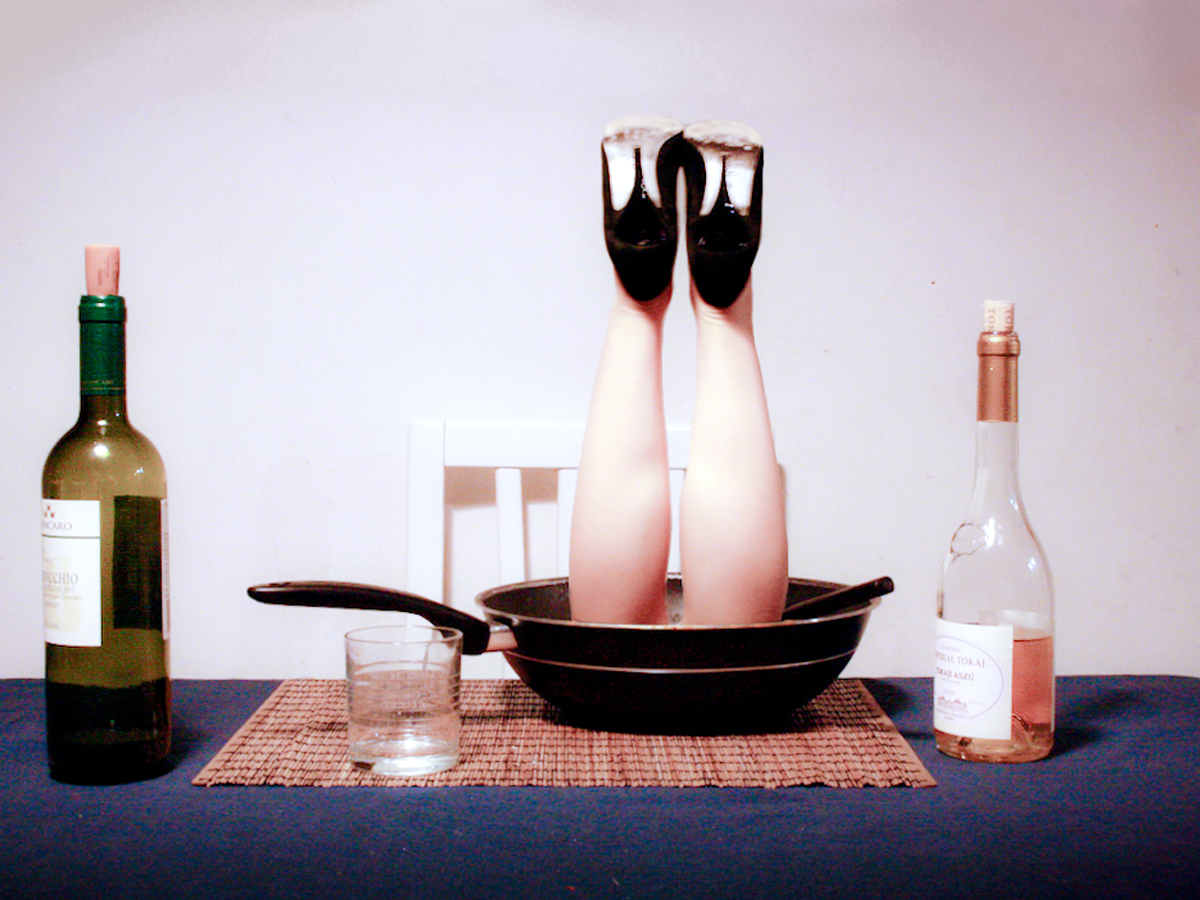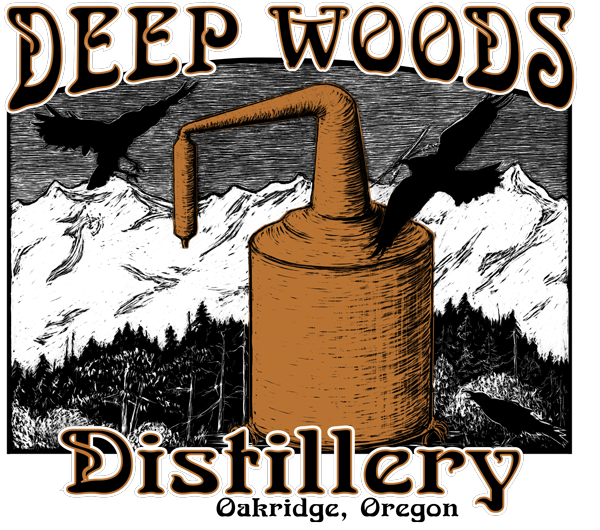
Introduction
The Association Between Wine And Libido Throughout History
Throughout history, wine has been closely tied to romance and sensuality. From ancient Greek mythology to Shakespearean plays, the consumption of wine has often been seen as a catalyst for love and desire. These cultural associations have led to the widespread belief that wine can enhance libido and sexual experiences.
Setting The Record Straight: The Importance Of Evidence-based Information
While the belief that wine can make you horny is prevalent, it is crucial to approach this topic with caution and rely on scientific evidence. Anecdotal reports of heightened desire after drinking wine may exist, but they should not be considered as concrete proof of its effects.
To determine the influence of wine on libido, scientific studies have been conducted. These studies evaluate the impact of alcohol on sexual functioning and desire. The results, however, are mixed, with some studies suggesting that low to moderate alcohol consumption may slightly increase sexual arousal, while others find no significant correlation.
It is essential to understand that the effects of alcohol, including wine, on libido can vary greatly from individual to individual. Factors such as tolerance, body mass, and personal preferences all play a role in how alcohol influences one’s sexual experiences.
Furthermore, alcohol consumption can have adverse effects on sexual functioning for some individuals. Excessive alcohol consumption can impair sexual performance, decrease arousal, and lead to difficulties in achieving orgasm.
In conclusion, while there may be some anecdotal evidence and limited scientific studies suggesting a potential link between wine and heightened libido, it is important to approach this topic with caution. Individuals should prioritize moderation and make informed choices that align with their personal health and well-being. It is always best to rely on evidence-based information and consider individual differences when it comes to the effects of wine on sexual experiences.
Understanding The Influence Of Wine On Libido
Investigating The Potential Benefits Of Wine On Sexual Desire
Scientific studies have been conducted to determine the influence of wine on libido. These studies evaluate the impact of alcohol on sexual functioning and desire. However, the results are mixed, with some studies suggesting that low to moderate alcohol consumption may slightly increase sexual arousal, while others find no significant correlation.
It is important to note that the effects of alcohol, including wine, on libido can vary greatly from individual to individual. Factors such as tolerance, body mass, and personal preferences all play a role in how alcohol influences one’s sexual experiences.
The Role Of Wine In Relaxation And Mood Enhancement
One aspect to consider is the potential role of wine in relaxation and mood enhancement. Wine is often associated with relaxation due to its ability to lower inhibitions and promote a sense of calm. In turn, this relaxation may contribute to a heightened sense of desire and intimacy.
However, it is essential to caution against excessive alcohol consumption, as it can have adverse effects on sexual functioning. Drinking too much wine can impair sexual performance, decrease arousal, and lead to difficulties in achieving orgasm.
In conclusion, while there may be some anecdotal evidence and limited scientific studies suggesting a potential link between wine and heightened libido, it is important to approach this topic with caution. Individuals should prioritize moderation and make informed choices that align with their personal health and well-being. It is always best to rely on evidence-based information and consider individual differences when it comes to the effects of wine on sexual experiences.
Debunking Common Misconceptions
Myth: Wine Acts As An Aphrodisiac
There is a common misconception that wine acts as an aphrodisiac, increasing sexual desire and arousal. While some people may experience a temporary increase in libido after consuming wine, it is important to note that this effect is more likely due to the general relaxation and mood-enhancing properties of alcohol rather than any specific aphrodisiac qualities of wine itself. It is essential to approach the topic with caution and not rely solely on anecdotal experiences or beliefs.
Myth: Wine Consumption Leads To Heightened Sexual Performance
Another common misconception is that consuming wine can enhance sexual performance. While alcohol may initially lower inhibitions and increase confidence, excessive alcohol consumption, including wine, can impair sexual functioning. It can lead to difficulties in achieving and maintaining an erection or experiencing orgasm. It is important to prioritize moderation and be aware of the potential negative effects of excessive alcohol consumption on sexual performance.
Overall, it is crucial to approach the influence of wine on libido with caution and make informed choices that prioritize personal health and well-being. While some studies suggest a potential link between low to moderate wine consumption and increased sexual arousal, the effects can vary greatly among individuals. It is always best to rely on evidence-based information and consider individual differences when it comes to the effects of wine on sexual experiences.
The Science Behind Alcohol’s Effects On Sexual Function
The Impact Of Alcohol As A Depressant On Libido
Contrary to popular belief, the idea that wine acts as an aphrodisiac and increases sexual desire is a common misconception. While some individuals may experience a temporary increase in libido after consuming wine, this effect is likely due to the general relaxation and mood-enhancing properties of alcohol, rather than any specific aphrodisiac qualities of wine itself. It is important to approach this topic with caution and not rely solely on anecdotal experiences or beliefs.
Alcohol’s Negative Influence On Erectile Function
Another common misconception is that consuming wine can enhance sexual performance. However, excessive alcohol consumption, including wine, can actually impair sexual functioning. Alcohol is a depressant that affects the central nervous system and can lead to difficulties in achieving and maintaining an erection or experiencing orgasm. While small amounts of alcohol may lower inhibitions and increase confidence initially, excessive consumption can have negative effects on sexual performance.
Overall, it is crucial to approach the influence of wine on libido and sexual function with caution and make informed choices that prioritize personal health and well-being. While some studies suggest a potential link between low to moderate wine consumption and increased sexual arousal, the effects can vary greatly among individuals. It is always best to rely on evidence-based information and consider individual differences when it comes to the effects of wine on sexual experiences.

Exploring Individual Differences
How Individuals May Experience Varying Effects Of Wine On Libido
When it comes to the effects of wine on libido, individual experiences can vary greatly. Some people may notice an increase in sexual desire after consuming wine, while others may not experience any change at all. This can be influenced by factors such as genetics, metabolism, and overall health.
Additionally, personal expectations and beliefs about the effects of wine on libido can also play a role. If someone strongly believes that wine will enhance their sexual desire, they may be more likely to perceive an increase in libido after consuming it. On the other hand, those who have a negative belief about alcohol’s effects on sexual function may experience a decrease in libido.
Understanding The Factors That Contribute To Individual Responses
Several factors contribute to the varying responses individuals have to wine’s influence on libido. One important factor is the individual’s overall health and well-being. People with underlying medical conditions or medications that affect sexual function may experience different effects from consuming wine.
Genetics also play a role in how individuals react to alcohol. Some people may have a higher tolerance for alcohol and may be less affected by its effects on sexual function, while others may be more sensitive to its depressant properties.
Metabolism is another factor that can influence individual responses. People with faster metabolisms may process alcohol more quickly, potentially experiencing a shorter duration of any temporary increase in libido.
Overall, it is important to recognize that the effects of wine on libido can vary greatly among individuals. While some may experience a temporary increase in sexual desire, others may not notice any change or even experience a decrease. It is important to approach the topic with caution and make informed choices that prioritize personal health and well-being.
Moderation Is Key
The Importance Of Responsible Alcohol Consumption
When it comes to consuming alcohol, moderation is crucial. This applies to wine as well, especially when exploring its potential effects on libido. While some evidence suggests that wine may have potential benefits for sexual desire, it is essential to approach the topic with caution and prioritize responsible consumption.
Excessive alcohol consumption can have negative impacts on both physical and mental health. It can lead to impaired judgment, increased risk-taking behavior, and decreased sexual performance. Therefore, it is important to consume alcohol, including wine, in moderation to ensure overall well-being.
How To Make Informed Choices That Align With Personal Health And Well-being
When considering the influence of wine on libido, it is crucial to make informed choices that prioritize personal health and well-being. Here are a few guidelines:
- Know your limits: Understand how much alcohol you can safely consume based on factors such as age, weight, and overall health.
- Stay within recommended guidelines: Follow the suggested limits for alcohol consumption, such as no more than one drink per day for women and two drinks per day for men.
- Listen to your body: Pay attention to how your body responds to alcohol and make adjustments accordingly. If you notice negative effects on libido or overall well-being, consider reducing or eliminating alcohol consumption.
- Consider individual differences: Recognize that everyone’s response to alcohol, including its effects on libido, can vary. Factors such as genetics, metabolism, and overall health play a role in how individuals may be affected.
- Seek professional advice: If you have underlying health conditions or concerns about alcohol’s impact on your sexual function, consult with a healthcare professional for personalized guidance.
By approaching the topic of wine’s influence on libido with moderation and informed choices, individuals can make decisions that align with their personal health and well-being. Remember that responsible consumption and prioritizing overall wellness should always be the top priority.
Potential Psychological Factors
The Role Of Psychological Factors In Perceiving Increased Sexual Desire After Wine Consumption
When it comes to the perceived effects of wine on libido, psychological factors can play a significant role. While there is no scientific evidence to support the idea that wine directly increases sexual arousal or desire, individuals may still experience such effects based on their psychological state and expectations.
Psychological factors such as anticipation, relaxation, and the ambiance surrounding wine consumption can contribute to an individual’s perception of increased sexual desire. In certain cultural contexts, wine is often associated with romance and intimacy, creating a psychological connection between the two.
Additionally, the placebo effect may come into play. If someone believes that wine will enhance their libido, they may experience an increase in sexual desire, even if it is not directly caused by the wine itself. This further highlights the importance of personal experiences and expectations in shaping perceived effects.
The Distinction Between Actual Sexual Desire And Perceived Arousal
It is important to differentiate between actual sexual desire and perceived arousal when discussing the influence of wine on libido. While individuals may perceive an increase in sexual desire after consuming wine, it is essential to understand that this does not necessarily mean a physiological change has occurred.
Perceived arousal may be influenced by various factors, including psychological and cultural factors as mentioned earlier. It is crucial to consider the broader context and be mindful of personal experiences and expectations when interpreting the effects of wine on libido.
In conclusion, while there is no scientific evidence to support the direct influence of wine on sexual desire, psychological factors and individual experiences can shape an individual’s perception of increased libido after wine consumption. It is important to approach the topic with caution, prioritize responsible alcohol consumption, and make informed choices that align with personal health and well-being.

Potential Psychological Factors
The Role Of Psychological Factors In Perceiving Increased Sexual Desire After Wine Consumption
When it comes to the perceived effects of wine on libido, psychological factors can play a significant role. While there is no scientific evidence to support the idea that wine directly increases sexual arousal or desire, individuals may still experience such effects based on their psychological state and expectations.
Psychological factors such as anticipation, relaxation, and the ambiance surrounding wine consumption can contribute to an individual’s perception of increased sexual desire. In certain cultural contexts, wine is often associated with romance and intimacy, creating a psychological connection between the two.
Additionally, the placebo effect may come into play. If someone believes that wine will enhance their libido, they may experience an increase in sexual desire, even if it is not directly caused by the wine itself. This further highlights the importance of personal experiences and expectations in shaping perceived effects.
The Distinction Between Actual Sexual Desire And Perceived Arousal
It is important to differentiate between actual sexual desire and perceived arousal when discussing the influence of wine on libido. While individuals may perceive an increase in sexual desire after consuming wine, it is essential to understand that this does not necessarily mean a physiological change has occurred.
Perceived arousal may be influenced by various factors, including psychological and cultural factors as mentioned earlier. It is crucial to consider the broader context and be mindful of personal experiences and expectations when interpreting the effects of wine on libido.
In conclusion, while there is no scientific evidence to support the direct influence of wine on sexual desire, psychological factors and individual experiences can shape an individual’s perception of increased libido after wine consumption. It is important to approach the topic with caution, prioritize responsible alcohol consumption, and make informed choices that align with personal health and well-being.
Conclusion
Summarizing The Findings: No Scientific Evidence Supports The Claim That Wine Increases Sexual Desire
Based on the available scientific evidence, it can be concluded that wine does not directly increase sexual desire. While associative and psychological factors may lead individuals to perceive heightened libido after wine consumption, these effects are not supported by physiological changes.
Emphasizing The Importance Of Prioritizing Moderation And Individual Differences
Regardless of the belief that wine can enhance sexual desire, it is crucial to prioritize moderation and individual differences when consuming alcohol. Alcohol is a depressant that can impair sexual function, including libido and erectile function. Each individual’s response to alcohol may vary, and it is essential to make informed choices that align with personal health and well-being.
By approaching the topic cautiously and considering individual differences, individuals can make responsible decisions and prioritize their overall well-being when it comes to wine or any other alcoholic beverage consumption.
Frequently Asked Questions
Addressing Common Queries Surrounding The Influence Of Wine On Libido
Providing Evidence-based Answers And Clarifications
The Role Of Psychological Factors In Perceiving Increased Sexual Desire After Wine Consumption
When it comes to the perceived effects of wine on libido, psychological factors can play a significant role. While there is no scientific evidence to support the idea that wine directly increases sexual arousal or desire, individuals may still experience such effects based on their psychological state and expectations.
Psychological factors such as anticipation, relaxation, and the ambiance surrounding wine consumption can contribute to an individual’s perception of increased sexual desire. In certain cultural contexts, wine is often associated with romance and intimacy, creating a psychological connection between the two.
Additionally, the placebo effect may come into play. If someone believes that wine will enhance their libido, they may experience an increase in sexual desire, even if it is not directly caused by the wine itself. This further highlights the importance of personal experiences and expectations in shaping perceived effects.
The Distinction Between Actual Sexual Desire And Perceived Arousal
It is important to differentiate between actual sexual desire and perceived arousal when discussing the influence of wine on libido. While individuals may perceive an increase in sexual desire after consuming wine, it is essential to understand that this does not necessarily mean a physiological change has occurred.
Perceived arousal may be influenced by various factors, including psychological and cultural factors as mentioned earlier. It is crucial to consider the broader context and be mindful of personal experiences and expectations when interpreting the effects of wine on libido.
In conclusion, while there is no scientific evidence to support the direct influence of wine on sexual desire, psychological factors and individual experiences can shape an individual’s perception of increased libido after wine consumption. It is important to approach the topic with caution, prioritize responsible alcohol consumption, and make informed choices that align with personal health and well-being.
FAQ – Does Wine Make You Horny? Examining Wine Myths
Is it true that wine can make you feel more aroused or “horny”?
There is a common belief that consuming wine can have an aphrodisiac-like effect, leading to increased arousal or sexual desire. While this claim has been widely circulated, it is essential to examine the facts behind this myth.
What is an aphrodisiac?
An aphrodisiac is a substance that is believed to enhance sexual desire or arousal. Throughout history, various foods, drinks, and substances have been associated with aphrodisiac properties, although scientific evidence supporting these claims is often limited or inconclusive.
Is there any scientific evidence that supports the idea that wine makes you horny?
The scientific evidence supporting the notion that wine can directly increase sexual desire is lacking. While it is true that alcohol can lower inhibitions, promote relaxation, and potentially create a more favorable social atmosphere, these effects are not specific to wine alone.
What is the role of alcohol and wine in relation to sexual experiences?
Alcohol, including wine, can cause feelings of euphoria and reduce inhibitions. When consumed in moderation, it may help people feel more relaxed and in a sensual mindset. However, it is crucial to note that excessive alcohol consumption can impair sexual performance and diminish overall sexual satisfaction.
Are there any specific components in wine that could contribute to increased arousal?
Some researchers suggest that certain compounds found in wine, such as resveratrol, may have potential health benefits, including improving cardiovascular health and blood flow. However, the impact of these compounds on sexual desire specifically has not been extensively studied or proven.
Can different types of wine affect sexual desire differently?
While the specific type of wine consumed may influence one’s sensory experience, there is limited scientific evidence to support the idea that different types of wine have varying effects on sexual desire.
What are some other myths associated with wine and sexuality?
Apart from the belief that wine can increase sexual desire, there are other common myths that have circulated. These include the idea that red wine is more potent in enhancing libido, and that wine can improve sexual performance. However, it is important to approach such claims with skepticism until proper scientific research can substantiate them.
What are some alternative ways to enhance intimacy and sexual desire?
Rather than relying solely on the consumption of wine, engaging in open communication, maintaining a healthy lifestyle, managing stress levels, and exploring new experiences with a partner can all contribute to enhancing intimacy and sexual desire.
In conclusion, while wine consumption can create a conducive environment for relaxation and intimacy, the claim that it directly increases sexual desire remains anecdotal. It’s important to approach this topic with realistic expectations and consider the broader factors at play in one’s overall sexual experiences.

At Deep Woods Distillery, we try to put an essence of the Great Oregon Forest in each bottle of hand-crafted liquor we make. All of our spirits are made from scratch in Oakridge, Oregon, from select ingredients.